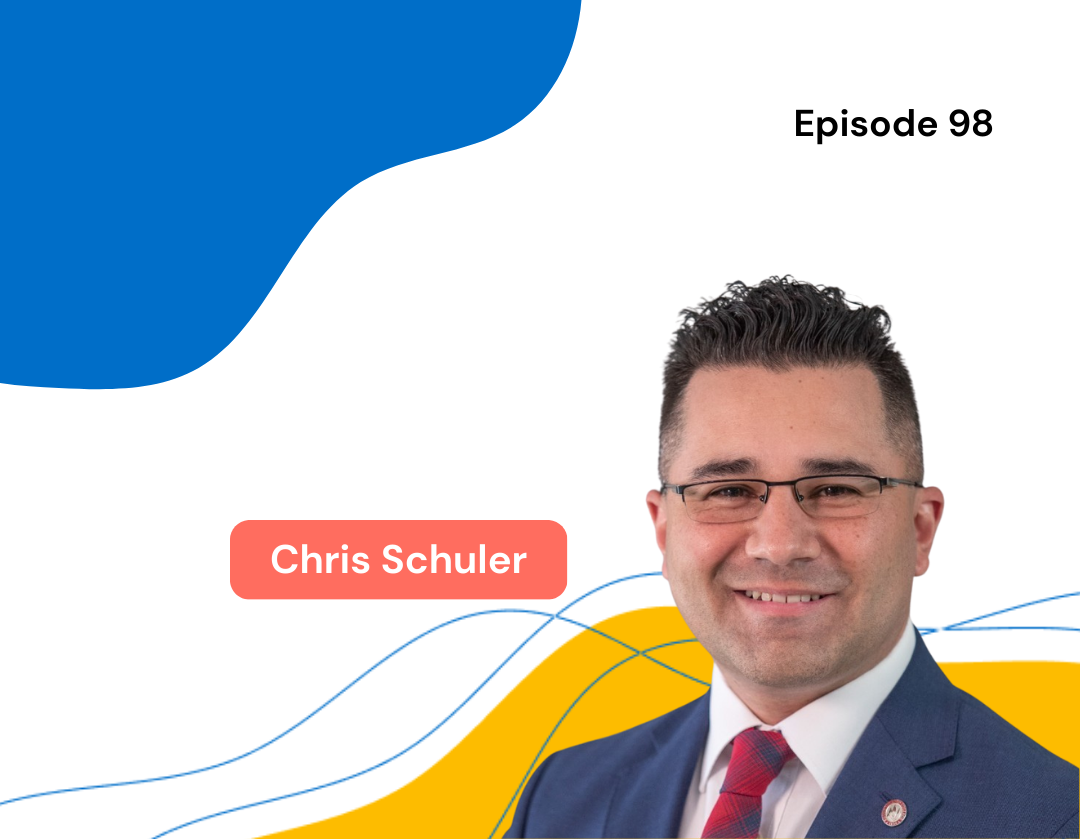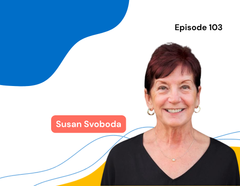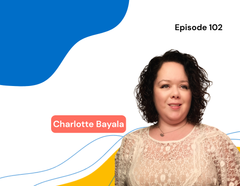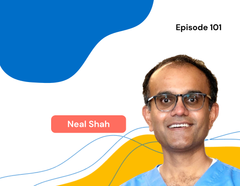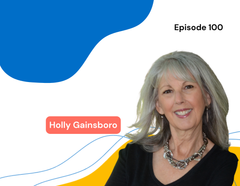It happened fast—like it often does with glioblastoma. One moment, Chris and his family were walking into a routine appointment. The next, they were hearing the word “glioblastoma” for the first time. They walked out of that room not just stunned, but irrevocably changed.
The conversation on The Patient From Hell podcast with host Samira Daswani captures Chris’s raw and honest retelling of what it’s like to be thrown into the role of a caregiver without warning. He wasn’t just processing a medical diagnosis—he was suddenly navigating grief, urgency, and a thousand unanswered questions. For anyone who has ever asked: “What do I do when my parent is diagnosed with brain cancer?” This story holds deep insight.
What to ask the doctor when you’re told it’s glioblastoma?
Chris remembers sitting in that appointment, listening to terms like “standard of care,” “biopsy,” and “treatment plan,” but nothing felt clear. When the doctor stepped out, Chris followed him into the hallway and asked: “How long does my dad have?”
It was a moment of courage in the middle of chaos—and a question many caregivers are afraid to ask. The doctor said, “Maybe five more years,” but later, when Chris searched online, he found a very different answer: “How long do glioblastoma patients live?” The typical survival range was 6 to 12 months.
That moment taught Chris something critical: you have to advocate for clarity. The default information isn’t always the full truth. Sometimes it’s softened for shock, or simply incomplete. Caregivers must learn to ask the hard questions—and follow up later when the dust settles.
What does it feel like to be the caregiver, not the patient?
As Chris explains it, the patient often goes into tunnel vision, dealing with their illness one minute at a time. But caregivers have to manage everything else: logistics, emotions, finances, and family.
“I had to be present, but also plan. I was grieving while coordinating,” Chris said.
For anyone searching “What does it mean to be a caregiver during cancer?”, this is what it means. It’s living in the tension between holding yourself together and falling apart behind closed doors.
Should you get a second opinion for glioblastoma?
Within 12 hours of the diagnosis, Chris and his wife packed a bag and drove his dad to Mass General in Boston for a second opinion. They needed another set of eyes on the scans. “I just couldn’t live with not checking,” he said.
It turned out the doctors there agreed with the original plan—but getting that confirmation gave Chris and his family confidence. For those wondering, “Should I get a second opinion for brain cancer?”, the answer from Chris is a resounding yes. It’s not about distrust—it’s about peace of mind.
What helps caregivers cope after a devastating diagnosis?
Chris did what many people do when they feel untethered: he turned to structure. He created spreadsheets, gathered data, tracked clinical trials, and called every hospital he could think of. Even if none of it changed the outcome, it gave him purpose.
He also sought moments of stillness. One day, unable to process it all, he sat in a quiet church and prayed. A stranger approached and prayed with him—just a small, unexpected kindness, but one that stuck. That moment reminded him that support often shows up in ways you don’t expect.
What would Chris say to other caregivers?
“Be the rock,” a friend told him. “Cry later.”
And he did. He learned that being strong didn’t mean being emotionless—it meant being steady, and letting yourself break down when the time was right.
He also learned to lean on others. When people ask, “How do you support a parent with terminal cancer?”, the answer isn’t about having all the right words. It’s about presence. It’s about showing up. And sometimes, it’s about staying up all night googling glioblastoma treatments—not because it’ll save them, but because you love them.
Chris’s story isn’t just about medical decisions or timelines. It’s about love, responsibility, and the quiet moments in between. It’s about what happens when life shifts in an instant—and how we choose to meet it.
If you’re walking a similar road, whether with glioblastoma or any terminal cancer, know this: you’re not alone. The fear, the questions, the weight of it all—it’s part of the journey. But so is the strength you didn’t know you had.
